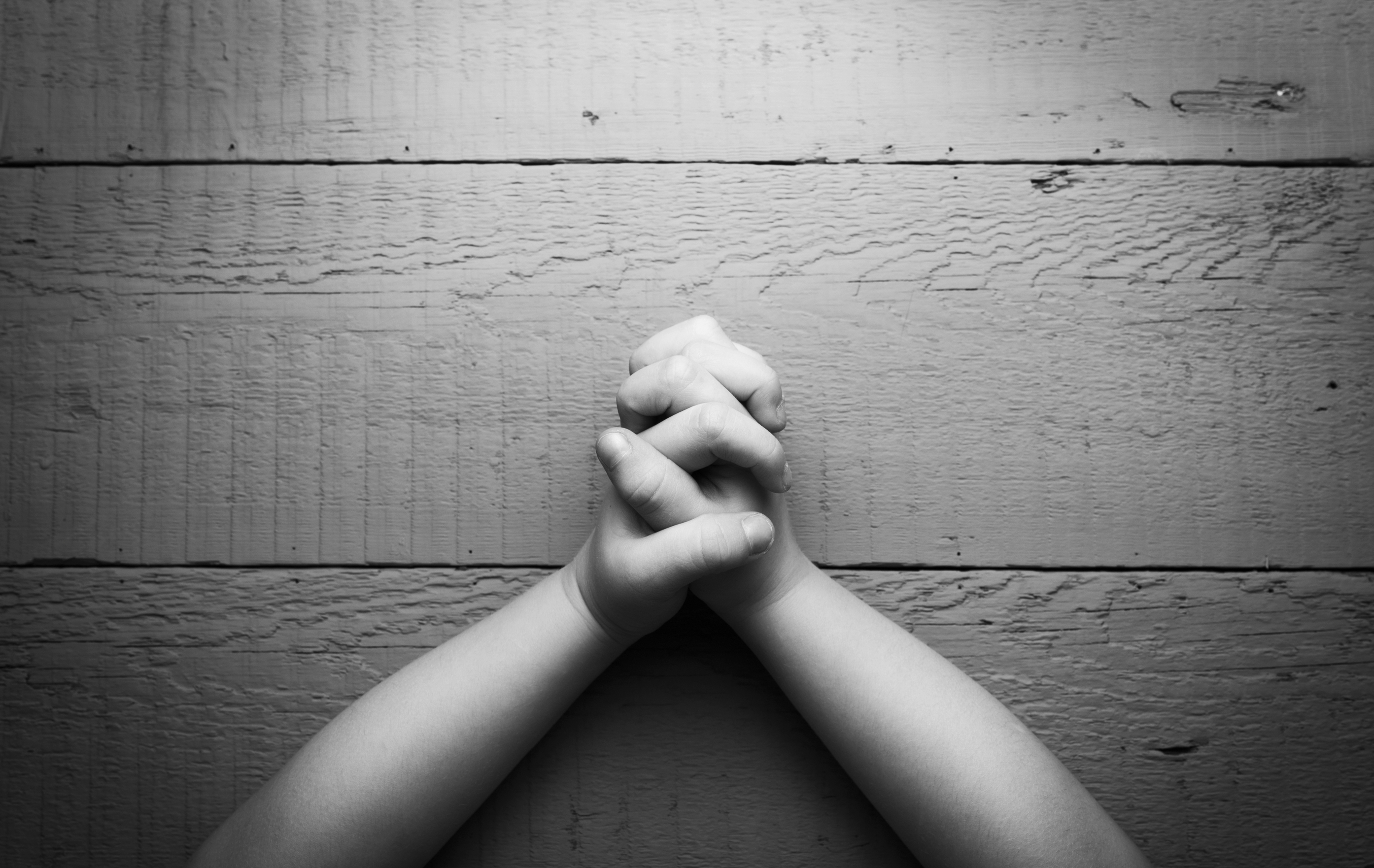God, child abuse, and the limits of religious freedom in America
The ocean of religious liberty stops at the shore of child welfare


A free daily email with the biggest news stories of the day – and the best features from TheWeek.com
You are now subscribed
Your newsletter sign-up was successful
A woman in Indiana who was charged with child abuse claims that she was merely disciplining her 7-year-old son according to her evangelical Christian beliefs, and is therefore protected under Indiana's Religious Freedom Restoration Act.
Kihn Par Thaing allegedly beat her child with a coat hanger, leaving more than 30 bruises. As justification for her behavior, court documents cite a passage from the Old Testament book of Proverbs claiming that a parent who "spares the rod, spoils the child."
Thaing's case has gained widespread attention in a moment when the limits of religious liberty are being adjudicated nationwide. In 2014, Hobby Lobby successfully argued before the Supreme Court that privately held companies should be exempt from providing contraception to their employees if it conflicts with their sincerely held religious convictions. And last year, SCOTUS ruled that a prisoner could grow a beard in accordance with his Muslim beliefs even though it conflicts with the Arkansas Department of Corrections' regulations. Meanwhile, other appeals to "religious liberty" — such as Christian cake bakers, florists, and photographers who wish to refuse wedding services to LGBT couples — have failed.
The Week
Escape your echo chamber. Get the facts behind the news, plus analysis from multiple perspectives.

Sign up for The Week's Free Newsletters
From our morning news briefing to a weekly Good News Newsletter, get the best of The Week delivered directly to your inbox.
From our morning news briefing to a weekly Good News Newsletter, get the best of The Week delivered directly to your inbox.
Some conservatives speak about religious liberty as if it is the ultimate trump card. Even if the law prohibits an action or deems it discriminatory, they say, religious persons should be exempt if the law conflicts with their beliefs. Cases like Thaing's take that position to its extreme.
Does religious freedom have limits? If so, then surely child abuse exceeds those limits.
Thaing is correct that the Bible often encourages physical discipline, as in the case of the popular verse she cites. Unsurprisingly, Christians support spanking children at a higher rate than the general population.
But what is spanking? And when does it cross a line? Many parents feel a slap on the hand is acceptable, but what about a smack with a belt? What about 10 smacks? What if you use a coat hanger instead of a belt?
A free daily email with the biggest news stories of the day – and the best features from TheWeek.com
A literal reading of the Bible provides an astonishing amount of leeway.
Corporeal punishment in the Bible is performed with a "whip" or "rod" that smacks the back, not the buttocks, of the one being disciplined. The Christian scriptures proscribe no age limit — for example, a husband could "spank" his wife — and allows for leaving "bruises" and "wounds."
And what about the notion that a parent should wait to spank until they're calm, cool, and collected? As William Webb, professor at Tyndale Seminary and author of Corporal Punishment in the Bible, writes, "This sort of 'love but no anger' approach is a great plank within the platform of today's spanking advocates. Unfortunately, it simply is not a biblical concept."
If the allegations against Thaing are accurate and she angrily hit her son with a coat hanger dozens of times, leaving more than 30 bruises on his body, she may well have broken the law. But she could also make the case that such behavior is consistent with a literalistic interpretation of the Bible.
Plenty of Americans might counter that Thaing's interpretation of the Bible is wrong — that the Bible technically allows for spanking, but common sense and compassion mandate careful restrictions. But favoring one biblical interpretation over another is exactly the kind of logic that "religious liberty" advocates have repudiated. It doesn't matter if you think the Bible allows a baker to decorate a cake for a gay wedding. If a particular baker feels differently, then she must be excused from the law based on her interpretation of the Bible.
We could stake out the position that religious convictions must take precedence except when those convictions harm another person. But that raises the question of how we define "harm." Is it harmful to force an LGBT couple to drive two counties away just to receive basic public services or purchase goods? Is it harmful when a Christian funeral home owner fires a transgender employee on the basis of gender identity, even though she is performing all of her duties?
These are tricky questions. But Thaing's case provides at least a baseline. As Shawn Francis Peters, a University of Wisconsin professor and author of When Prayer Fails: Faith Healing, Children, and the Law, notes, religious liberty is always set aside when it conflicts with public order or the rights of minors.
"Throughout history, there have always been limits placed on religious liberty and all our constitutional freedoms," he says. "The courts have never given people unlimited religious freedoms."
The ocean of religious liberty stops at the shore of child welfare. But how far does it stretch beyond that? Only time — and lawsuits like this one — will tell.
For now, Thaing will probably end up paying a dear penalty for her religious convictions. After the Indiana mother allegedly beat her son, she instructed him to pray to ask God for forgiveness. Now, it seems, she'll likely be the one paying penance.
Jonathan Merritt is author of the book Learning to Speak God from Scratch: Why Sacred Words are Vanishing — and How We Can Revive Them and a contributing writer for The Atlantic.
-
 How the FCC’s ‘equal time’ rule works
How the FCC’s ‘equal time’ rule worksIn the Spotlight The law is at the heart of the Colbert-CBS conflict
-
 What is the endgame in the DHS shutdown?
What is the endgame in the DHS shutdown?Today’s Big Question Democrats want to rein in ICE’s immigration crackdown
-
 ‘Poor time management isn’t just an inconvenience’
‘Poor time management isn’t just an inconvenience’Instant Opinion Opinion, comment and editorials of the day
-
 The billionaires’ wealth tax: a catastrophe for California?
The billionaires’ wealth tax: a catastrophe for California?Talking Point Peter Thiel and Larry Page preparing to change state residency
-
 Bari Weiss’ ‘60 Minutes’ scandal is about more than one report
Bari Weiss’ ‘60 Minutes’ scandal is about more than one reportIN THE SPOTLIGHT By blocking an approved segment on a controversial prison holding US deportees in El Salvador, the editor-in-chief of CBS News has become the main story
-
 Has Zohran Mamdani shown the Democrats how to win again?
Has Zohran Mamdani shown the Democrats how to win again?Today’s Big Question New York City mayoral election touted as victory for left-wing populists but moderate centrist wins elsewhere present more complex path for Democratic Party
-
 Millions turn out for anti-Trump ‘No Kings’ rallies
Millions turn out for anti-Trump ‘No Kings’ ralliesSpeed Read An estimated 7 million people participated, 2 million more than at the first ‘No Kings’ protest in June
-
 Ghislaine Maxwell: angling for a Trump pardon
Ghislaine Maxwell: angling for a Trump pardonTalking Point Convicted sex trafficker's testimony could shed new light on president's links to Jeffrey Epstein
-
 The last words and final moments of 40 presidents
The last words and final moments of 40 presidentsThe Explainer Some are eloquent quotes worthy of the holders of the highest office in the nation, and others... aren't
-
 The JFK files: the truth at last?
The JFK files: the truth at last?In The Spotlight More than 64,000 previously classified documents relating the 1963 assassination of John F. Kennedy have been released by the Trump administration
-
 'Seriously, not literally': how should the world take Donald Trump?
'Seriously, not literally': how should the world take Donald Trump?Today's big question White House rhetoric and reality look likely to become increasingly blurred
